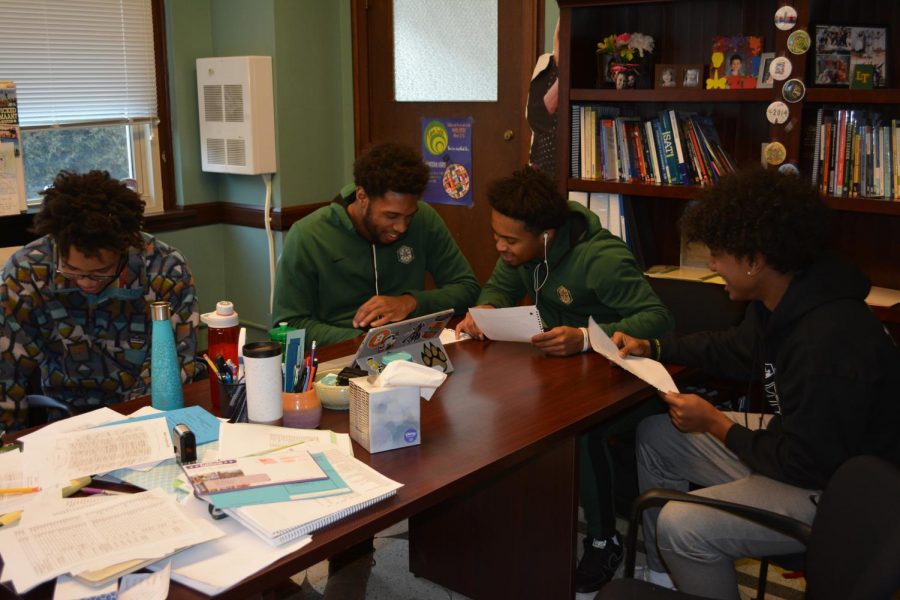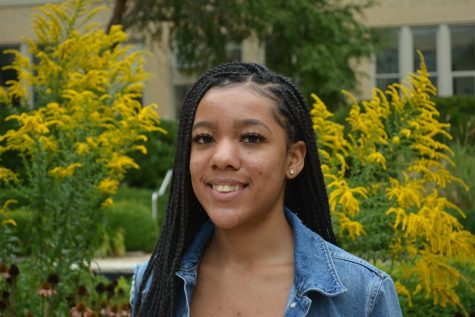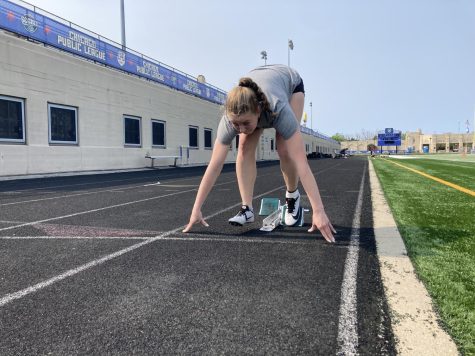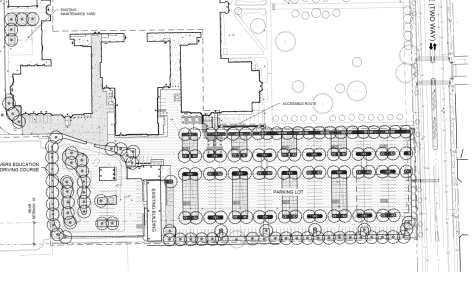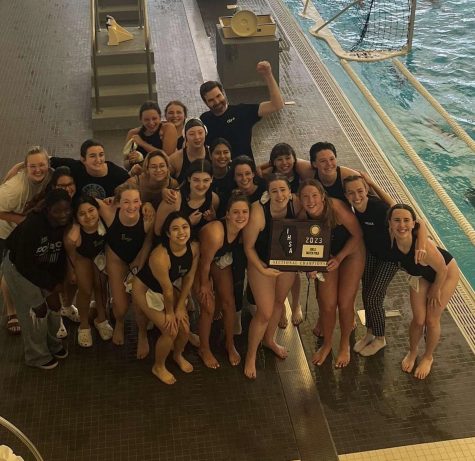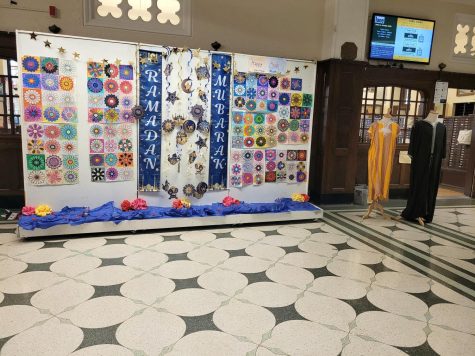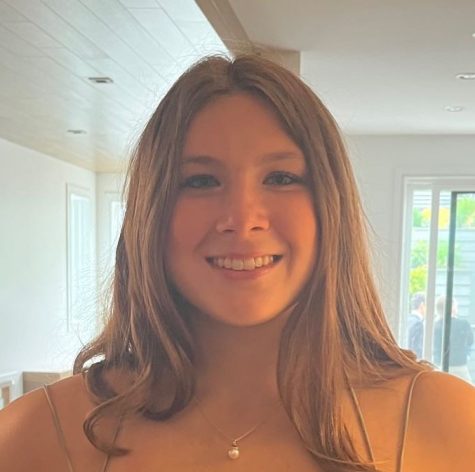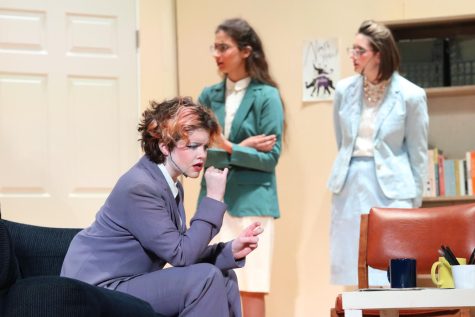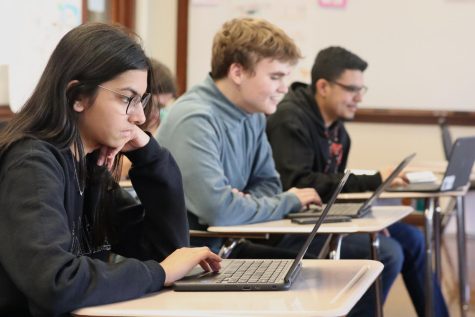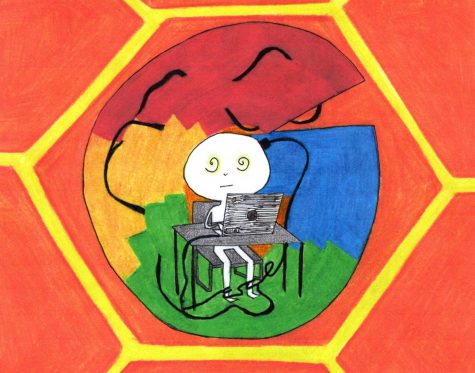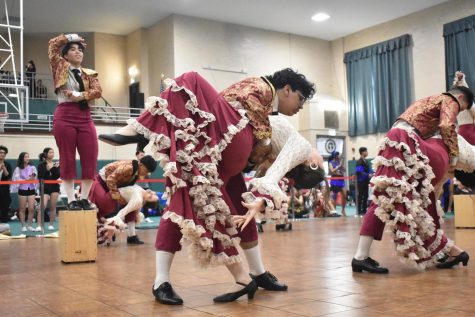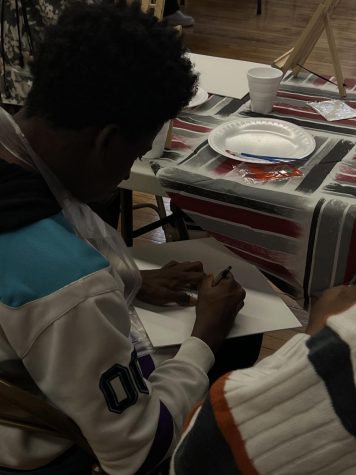Racial issues prompt African American student documentary
From left, Aidan Lloyd, Cleveland Jones, Rashad Harries and Caleb Terefe in their independent study period going over plans for the documentary.
December 21, 2019
Beginning from his time as an LTAC student, Aidan Lloyd has always noticed rising racial tensions across Lane’s campus directed mostly toward black students.
“The hate language, some of the social media posts that have come out over the years and the way teachers and students talk and interact with African American students and my personal experiences of prejudice,” Lloyd, Div. 050, said. “Being a bystander watching that stuff, it was very frustrating, it made me want to take a more active role and try to do something that I feel would be comfortable for everyone to be able to accept.”
Lloyd said the idea came to him after he and another student, Cleveland Jones, Div. 052, expressed their frustrations with the awkwardness of being the only two black students in a particular class to Principal Brian Tennison and Assistant Principal Sarah Hanly.
With the help of Hanly, Lloyd, along with Jones, Rashad Harries, Div. 070, and Caleb Terefe, Div. 061, decided to create a documentary as an independent study assignment that would highlight the black student experience.
Hanly volunteered to sponsor the project because the topic of the documentary is so closely related to some of the work that the administration is doing on the culture and climate in the building.
Students who do independent studies are allowed to pursue any academic interest they want, as long as the topic or interest isn’t already covered by normal classes, Hanly said.
“They have to be approved ahead of time, and they have to have a specific purpose,” Hanly said.
In Lloyd’s case, their independent study classwork is focused on the African American experience and equity issues around education.
“[Right now] they’re reading ‘Between the World and Me’ by Ta-Nehisi Coates. I find articles related to topics that we’re working on culture- and climate-wise here in the building, so we kind of talk about that,” said Hanly. “Then they’re going to, [during] second semester, figure out a research topic around those issues that they have a particular interest in.”
For the past year, aiming to improve Lane’s culture and climate, Hanly helped to coordinate African American student focus groups to target racial prejudice and to allow black students to voice their concerns about racialized situations in the school.
Lloyd said he feels that most of the racial issues in the school don’t necessarily stem from racism or hatred of black students, but rather from ignorance.
“I don’t think that the things that are happening in the building, [like microaggressions], are because all white people hate black people or anything,” Lloyd said. “More or less it’s because they don’t understand the things that they are doing and how they affect [black] students and how that disturbs our learning environment.”
The purpose of the documentary is to educate Lane’s student body on the black student perspective in a sensible way that can be easily understood by everyone, Lloyd said.
“This documentary isn’t for black people,” Lloyd said. “This documentary is for other people to understand the implications behind their actions and how it affects African Americans in the Lane Tech community, and all across the nation to further educate and hopefully help them become more conscious to improve their actions.”
Hanly also agreed that a documentary was the easiest way to present the topic to Lane’s student body.
“One of the things that we talked about was the importance of student stories, and so a documentary just seemed kind of like the easiest way to get that out,” Hanly said.
The majority of the film will be based on interviews from black Lane students. All black students were notified via email and invited to attend an informational session on Nov. 6, and from there were assigned their interview date.
The documentary itself is still in its early stages.
“We haven’t really discussed exactly what the topics are going to be on,” Lloyd said. “We know that at the beginning of the film it’s going to be the interviews, we know that the next thing that we want to address is why are African American students coming to Lane Tech if that’s against CPS’s design and then from there it’s really going to be the information and research that we pull out from the interviews.”
Lloyd and his team plan to talk directly with CPS administrators and directors like Dr. Janice Jackson, the current CEO of Chicago Public schools.
“We’re going to analyze each one and individually go through and discuss with different people in the building, and record different interviews, and discuss with various different directors of various programs in CPS, including Dr. [Janice] Jackson about the things that we find out,” Lloyd said.
The documentary will be available on YouTube and Lloyd plans on screening the documentary sometime in May after AP testing.
“We discussed that we’ll have like a Friday night showing and premiere of the documentary as well as we’re working out publishing and stuff like that, but it’s definitely going to be on YouTube,” Lloyd said.
Lloyd and his team has one goal for the documentary’s impact: empathy.
“Learning how to empathetically listen and interact with other students and understand that what they experience is different from what you may experience,” Lloyd said, “and that can just be based off of the color of your skin and things even smaller than that.”

